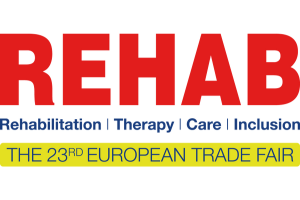Rulings with far-reaching consequences: Federal Social Court changes case law on local mobility and focuses on self-determination and participation
Adapted to current living conditions, the Federal Social Court has now clarified that being mobile in the local area must be redefined for mobility aids. On April 18, 2024, the Federal Social Court made three very practice-relevant decisions in this regard, once again emphasizing and thus strengthening the right to self-determined participation.
A welcome ruling for people who need mobility aids: Statutory health insurance companies must also cover the costs of mobility aids if they can be used to cover longer distances. The yardstick is no longer the distances covered by a pedestrian, but the actual local conditions for carrying out everyday tasks such as doctor's appointments, shopping, therapies and banking transactions. This means that abstract standards such as average living conditions or similar do not apply, but rather the specific local circumstances. The reality is that shopping facilities, for example, are not just within walking distance. The mobility behavior of the population has changed considerably, which also has an impact on the supply of assistive devices.
Highest care goal “independence”
With its rulings, the Federal Social Court clarifies that the entitlement to a motor-assisted mobility aid is not restricted by the range or speed of the product as long as the immediate vicinity of the home cannot reasonably be accessed independently and with one's own physical strength.
As a specialist lawyer, Jörg Hackstein also emphasizes the aspects of “participation” and “basic needs”, which must be met by the health insurance companies. “Insured persons are not only entitled to basic compensation in the sense of minimum care. The decisive factor is that the requested aid must make a significant contribution or at least provide significant relief in terms of accessing the local area in a reasonable and appropriate manner. For example, both an electric wheelchair and a push rim wheelchair with a power-assisted drive are suitable for covering a certain distance from A to B. However, the entitlement also includes being able to use one's own physical strength to complete everyday tasks. If an insured person still has sufficient physical strength to use their wheelchair independently with an assistive drive, they cannot be referred to a power wheelchair, even if this would be cheaper for the health insurance company. It is the task of the law on assistive devices to enable people with disabilities to lead as self-determined a life as possible and not to keep them away from all life-threatening dangers and thus leave them largely incapacitated."
Try out e-mobility and other aids for yourself
Users will find many innovative “e-mobile” aids at the 23rd European trade fair REHAB trade fair from May 22 to 24, 2025 in Karlsruhe. Here you can try out to your heart's content which product is suitable for achieving the desired care goals in everyday life directly on the exhibition grounds, for example in the test course.
Well-known exhibitors such as Rehasense, Meyra, Alber, Decon and van Raam have adapted their mobility aids to the needs of users with electric drives or offer additional drives for various manual wheelchair models.
Annika Gehrmeyer, Team Lead Medicine & Health at Messe Karlsruhe, adds:
Knowledge of the rulings on mobility must also reach cost bearers
However, the information still needs to be disseminated more widely: So far, the industry hasn't noticed much in the way of easier approvals as a result of the Federal Social Court rulings. If a person needs a specialized aid to compensate for a disability, then they are entitled to it. That's why it was and is important to carry out an extensive needs assessment, possibly video or photo documentation of the “trial and error” and, of course, a factually and professionally sound argument. The solidarity community can only pay for what is really needed. That said, there are also an increasing number of customers who buy such aids privately because they want to use them in their free time.
Advice and testing at qualified specialist retailers are the key to successful care
The need for and suitability of medical aids - including e-mobile products - will continue to be determined by qualified specialist retailers: “Real advice takes place in the specialized medical supply stores,” Simon Öhlschläger from the Stuttgart-based medical supply store Carstens is convinced. “Our specialist advisors know about the various reimbursement options and cost bearers; reimbursement via integration assistance, the integration office or the employment office may also be an option. They also know the possible alternative aids, as well as the types of illnesses and disabilities and the resulting restrictions. We have even worked together with Jobbike providers for special solutions, for example to enable a person with a walking disability to get to work using a custom-made bike.”
